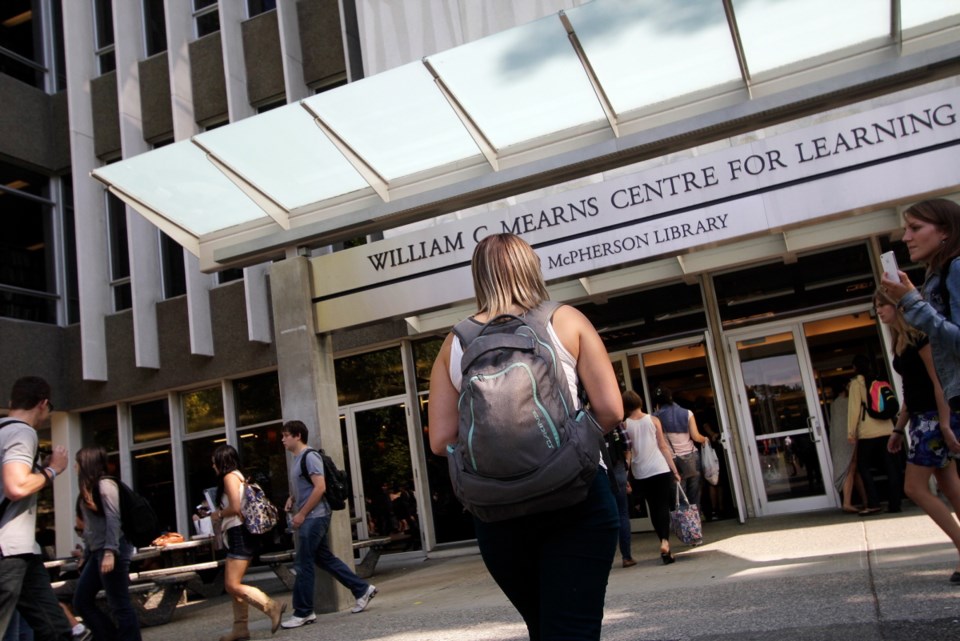University of Victoria professors began signing membership cards Monday in a move to establish a new union for about 850 faculty and librarians.
Organizers have 90 days to sign up at least 45 per cent of the faculty before asking the B.C. Labour Relations Board to hold a certification vote.
“We expect quite a few to be signed,” said Jason Price, who is leading the certification drive as vice-president of the University of Victoria Faculty Association
“We’ve got members lining up. In fact, at our early meetings in the fall and the spring, they were demanding cards at that point.”
Price said the move to unionize has been building for years, but gained momentum amid recent budget cuts and mounting frustration over salaries, which the faculty association says are among the lowest in Canada.
The association’s executive council voted unanimously to pursue unionization last April.
“It’s going to be the same people doing the same work but with enhanced legal rights,” said Price, an associate professor in the department of curriculum and instruction.
He noted that the current faculty association can go to arbitration on wages and benefits only, while a union will be able to pursue a wider range of non-monetary issues, including promotion and tenure.
In the past, many of those issues were resolved in a collegial way without a formal grievance or arbitration process, he said.
“[But] this university has become so large and so complex that we really need to formalize those relationships and provide us with the legal options that don’t essentially bankrupt us [because] we have to keep going to court,” he said.
The UVic administration is not taking a position on the unionization process and will respect whatever decision the faculty makes, said university spokeswoman Denise Helm.
Robert Clift, executive director of the Confederation of University Faculty Associations of B.C., said unionization efforts at UVic mirror similar processes underway across B.C.
The University of B.C. and Royal Roads University have faculty unions, while professors at Simon Fraser University and the University of B.C. are considering following suit.
Clift said most university academic staff across the country are members of faculty unions.
The move to unionize stems, in part, from a growing division between faculty and university administrators, who now operate less like academics and more like the corporate managers, Clift said.
With the loss of collegial problem-solving, faculty associations are looking for more power and legal tools to protect their members and the quality of education, he said.
Clift offered no predictions on whether the drive at UVic will succeed. He said more faculty members seem to support the idea that in the past.
“But if it doesn’t happen this time, it’s certainly going to happen at some time and not in the too distant future,” he said.



